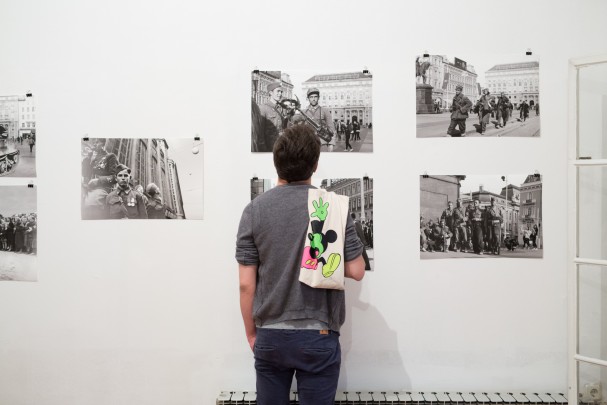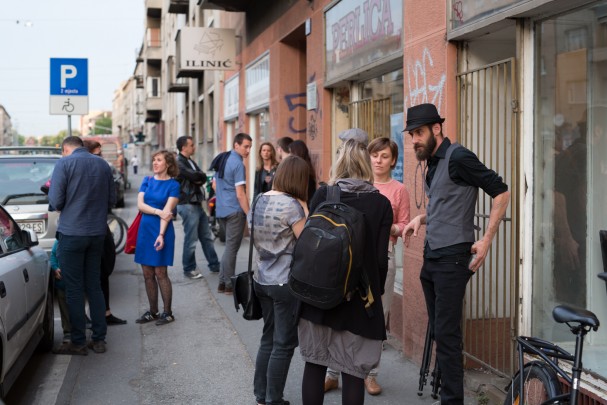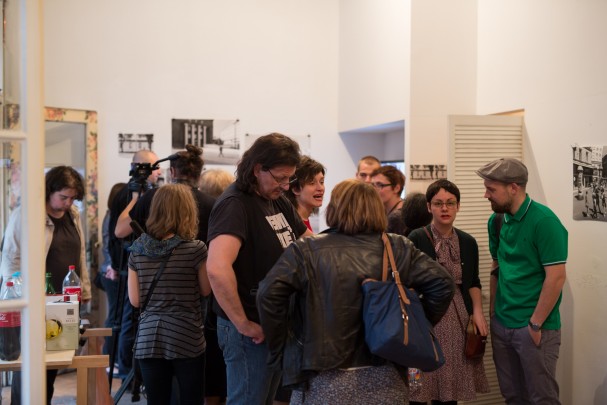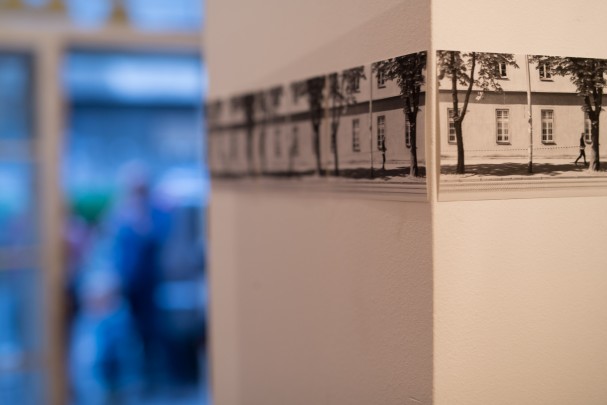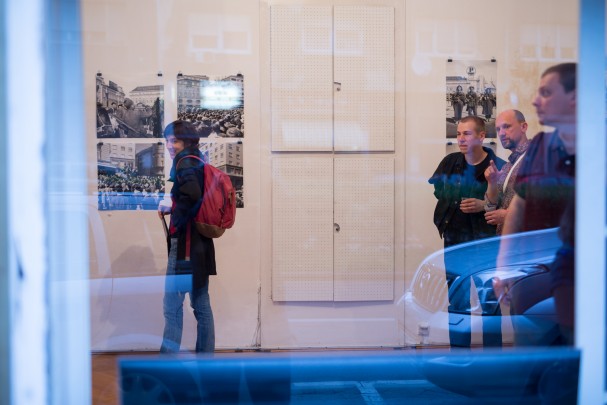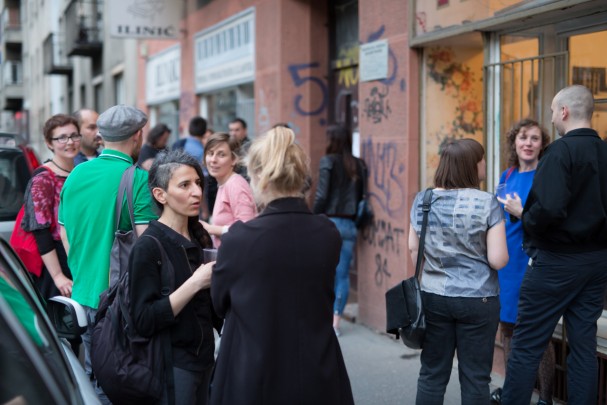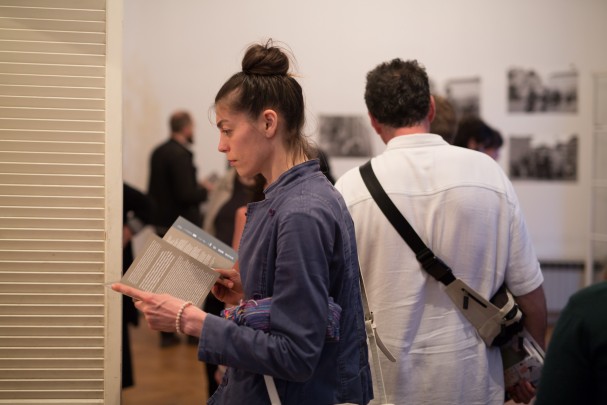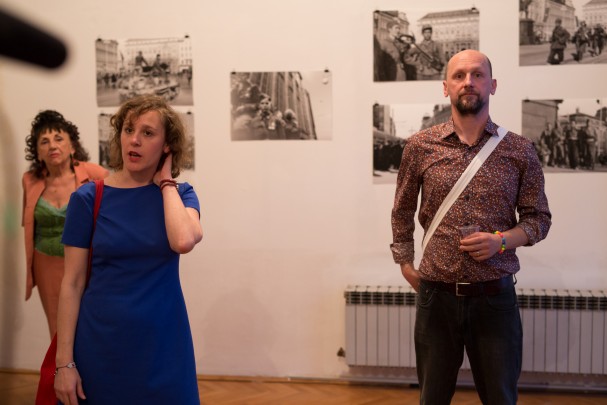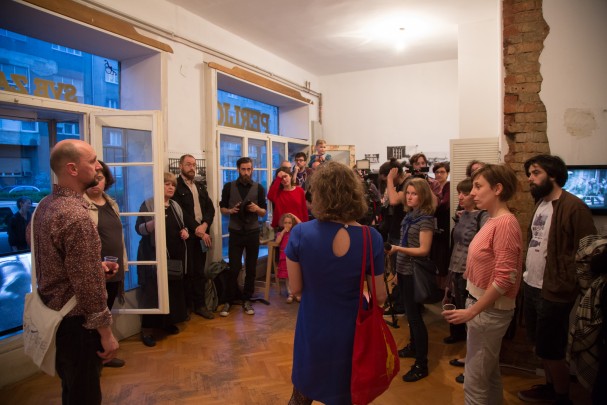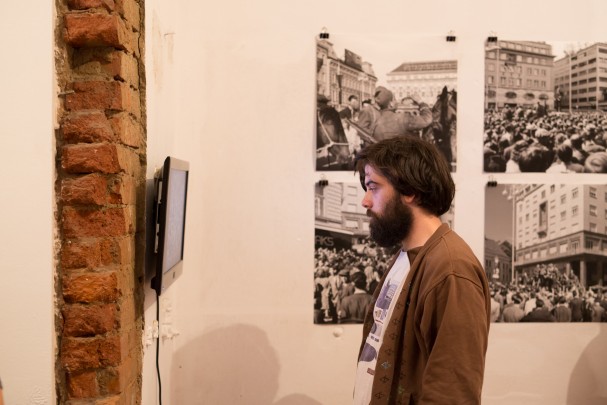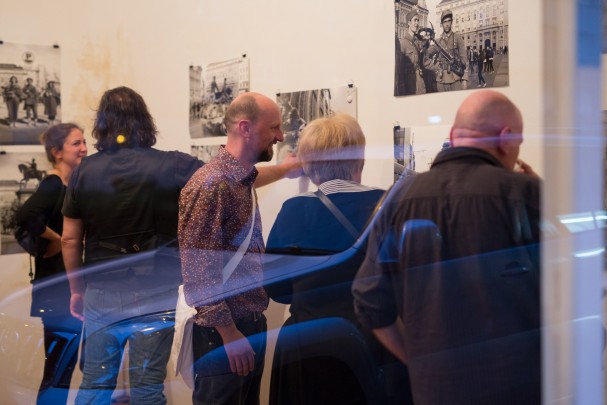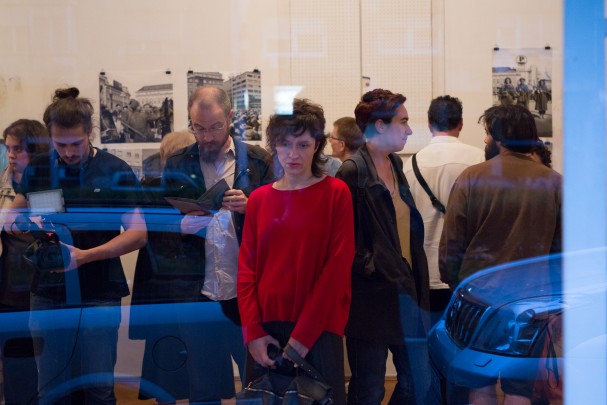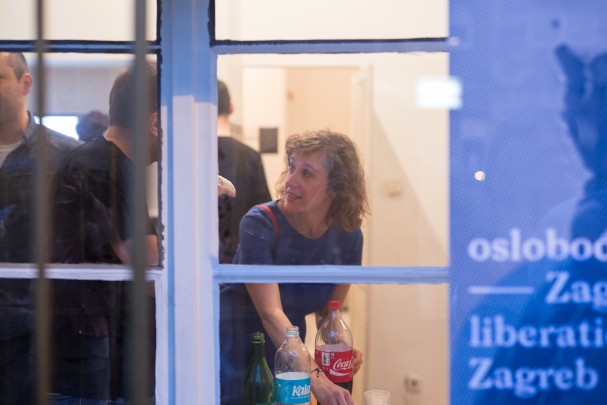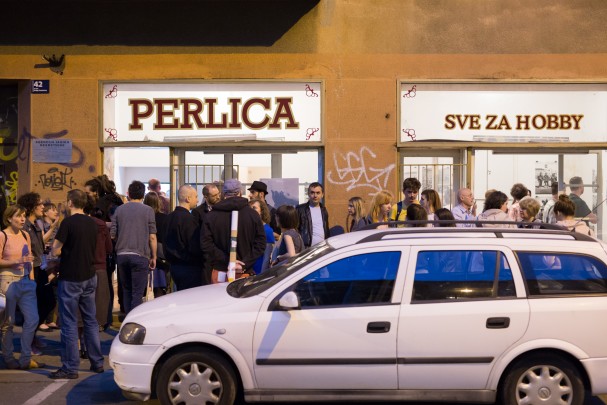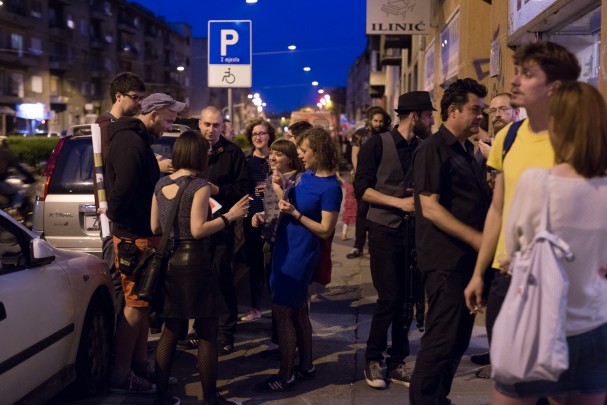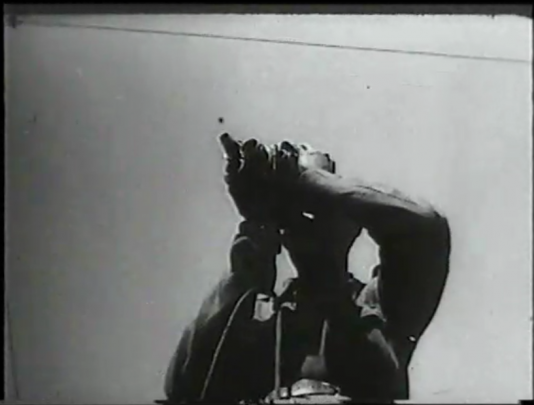Liberation of Zagreb, notes for a reconstruction
Goran Sergej Pristaš & Mila Pavićević
in collaboration with MA students of photography at the Academy of Dramatic Arts, University of Zagreb: Dario Belić, Nikola Šerventić, Dino Šertović & Ino Zeljak
The 70th anniversary of the liberation of Zagreb from fascism is also the 70th anniversary of a film recording known in the history of Yugoslav cinema as Newsreel no. 1. Using this material, both the montaged version and the “raw” shots, as well as the photographic documentation of Zagreb in the days around the Liberation, a group of authors has placed the given images into a new context, thus raising questions not only on the transformation of the city and the political circumstances that lead to it, but also on the transformation of the cinematic and photographic medium in itself.
The exhibition has therefore been mounted in a deserted urban space instead of a classical gallery display. It presents archival photo and video materials, as well as those resulting from the manipulation of (moving) images, sound, and text, obtained by collaging and montaging. For the time of its duration, the localities where the liberation army entered the city (the Vlaška-Draškovićeva-Jurišićeva-Frankopanska-Savska route) will be sites of various interventions and their documentation will return to the exhibition space in the form of film recordings, thus continuing to explore the contradiction in filming between (around) May 8, 1945 and May 8, 2015.
Case 1: Zagreb, early May 1945. The Nazi and Ustasha army is retreating from the city. Several filmmakers, mostly pioneers of the Croatian cinema, are securing the film materials and equipment, which the occupation army intends to take with them. A part of the equipment is transferred from the then building of the state production house to private houses, but it is impossible to hide everything. Therefore the filmmakers take their cameras, go out into the streets, and film the departure of Nazi and Ustasha soldiers from Zagreb. In order not to be noticed, they camouflage the cameras on windows or act as if they were fleeing themselves. Sometimes they even use the retreating soldiers to help them transfer the film equipment to the place where they intend to shoot. Film director Branko Marjanović, who is located in the city centre and decides about the shooting localities, is coordinating the entire action. On May 8, the partisan army enters the city and the filming continues. The mistrusting partisans occasionally stop the civilians carrying cameras, but the detained cameramen respond with the password: “Florian knows everything!” Even though there is no Florian and the password has been invented among the filmmakers, a name behind the action regulates the situation. The filmmakers are set free. This is how the historical document quoted in literature as the “Liberation of Zagreb” is created.
Case 2: The cameramen are preparing to leave for the liberated territory to help shoot the propaganda materials for ZAVNOH (State Antifascist Council for the People’s Liberation of Croatia). They collect cameras, photo-materials (chemicals and paper), winter equipment, and medicines. As soon as they receive the orders, they set off. It is the time when the leading Ustasha guard for “raising the morals” among the few followers is established. They take with them journalists, cameramen, and even a photo-reporter. A higher instance orders Milan Pavić to volunteer as an undercover agent, to observe and document everything he sees in order to submit a detailed report later on.
He is told that his group would then wait for him in order to take him to join the partisans in the liberated territory.
Production: [BLOK] in collaboration with Academy of Dramatic Art, University of Zagreb
The project uses photographs by Milan Pavić from the Collection of Photographs, Photographic Equipment, and Postacrds at the Zagreb Municipal Museum, as well as film material from the Croatian Film Archive.
Supervisors at the MA programme of Production (Department of Photography) at the Academy of Dramatic Arts, University of Zagreb: doc. art. Darije Petković, teaching assistant Jelena Blagović
Thanks: Muzej grada Zagreba, Hrvatski državni arhiv, Mreža anitfašistkinja Zagreba, Iva Prosoli, Josip Jagić, Mladen Burić, Carmen Lhotka, Filmske novosti, Amir Obhođaš, Juraj Kukoč, prof. Enes Midžić, Hrvatski filmskim ljetopis
Exhibition and intervention are part of the Heroes we Love 2014-2017 project With the support of the Creative Europe Programme of the European Union
